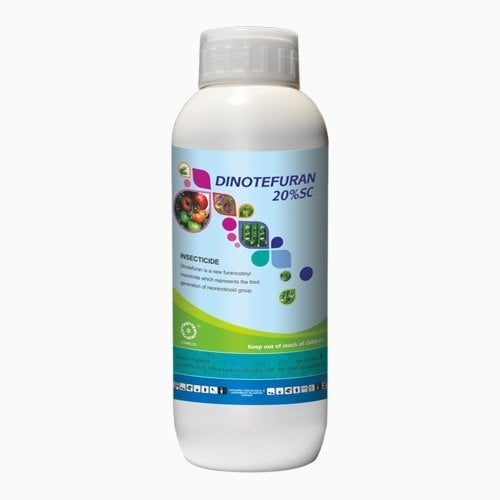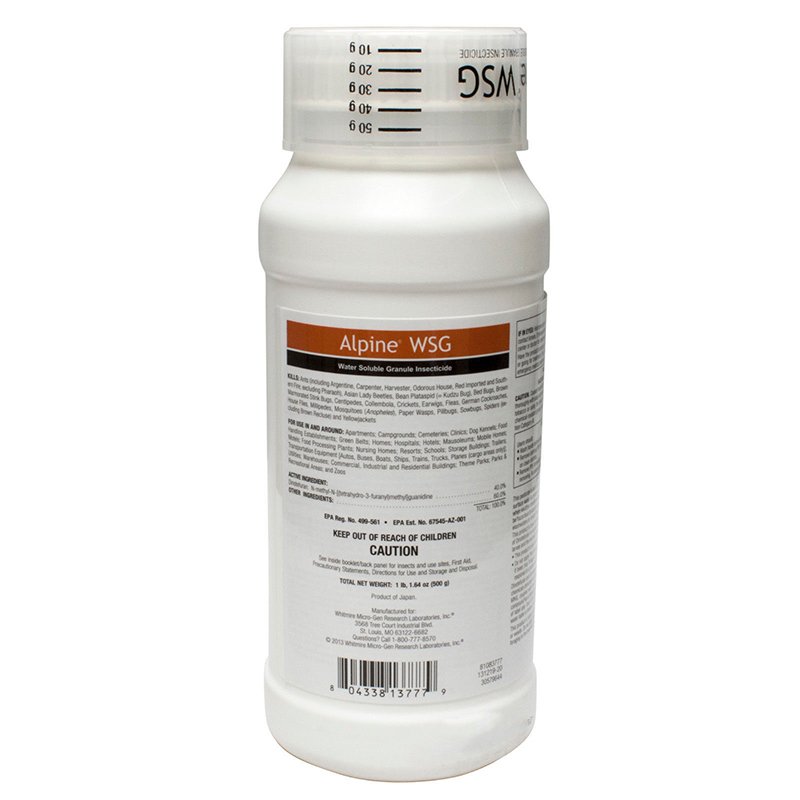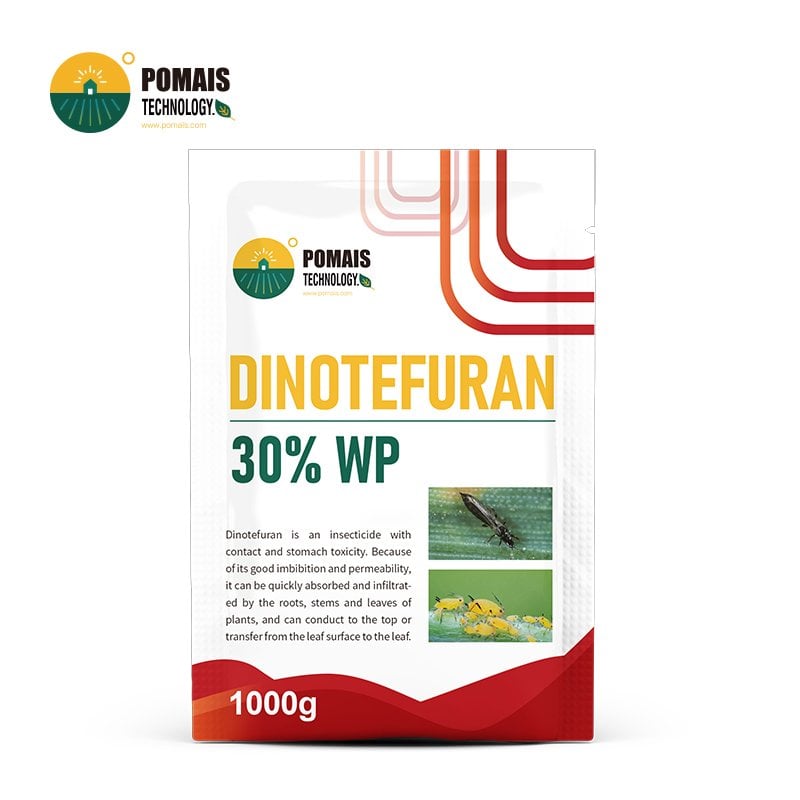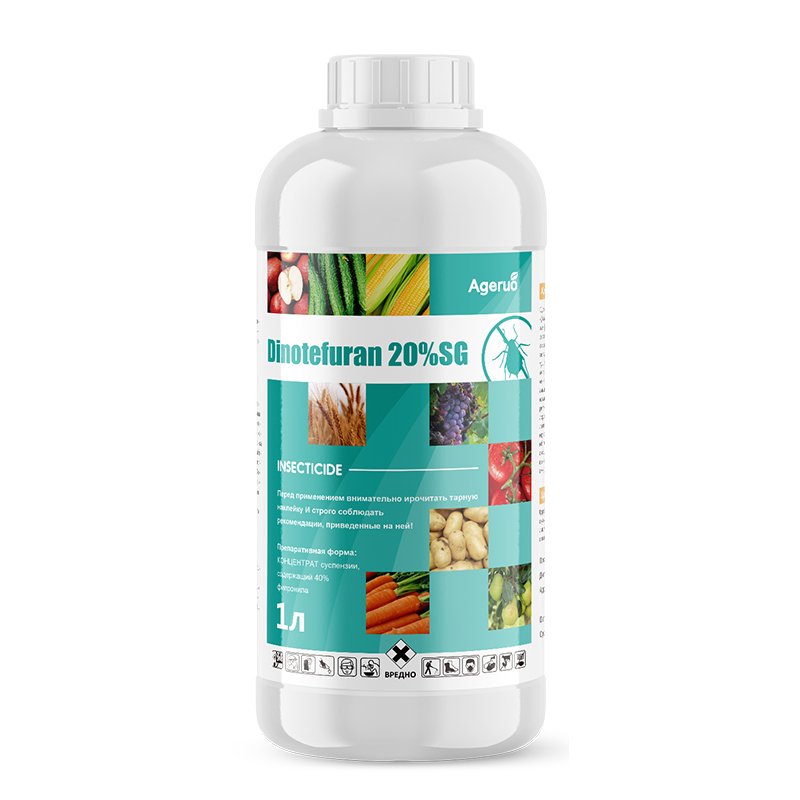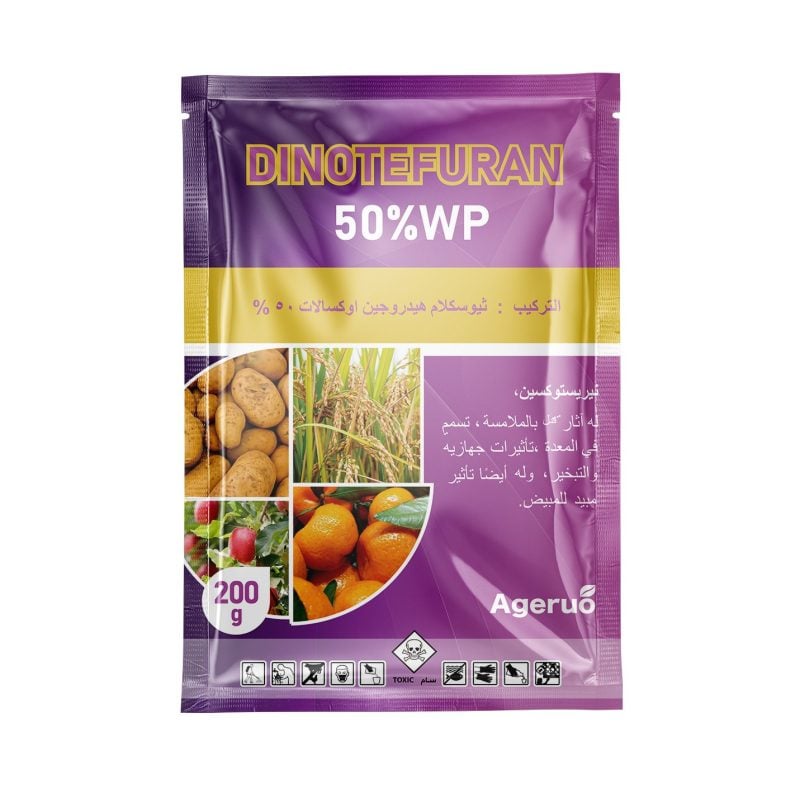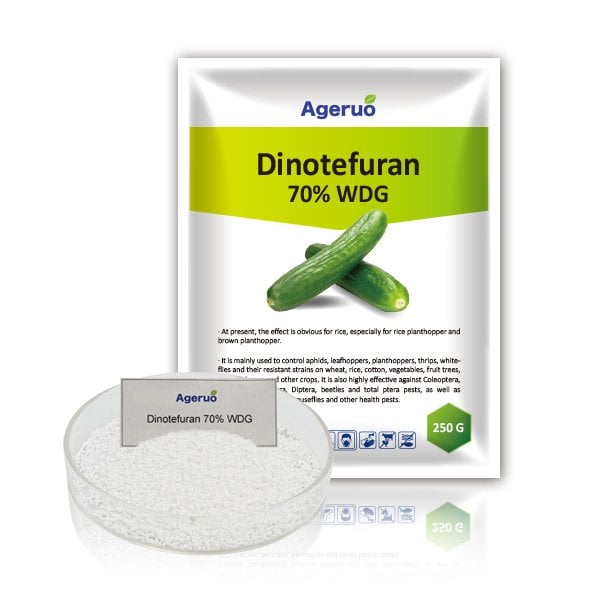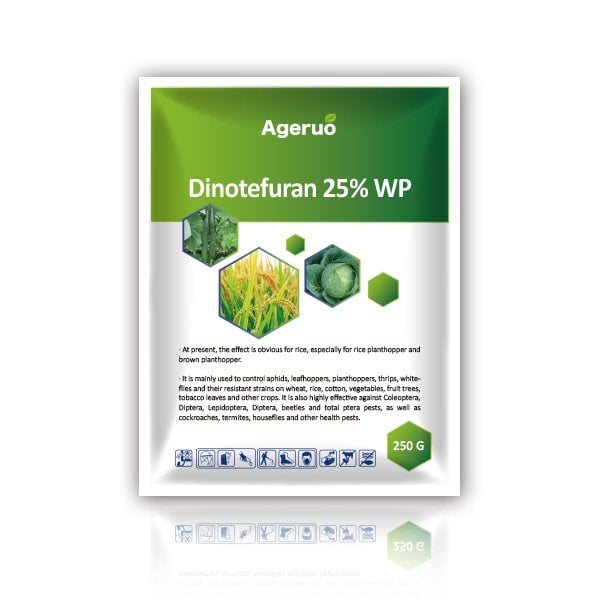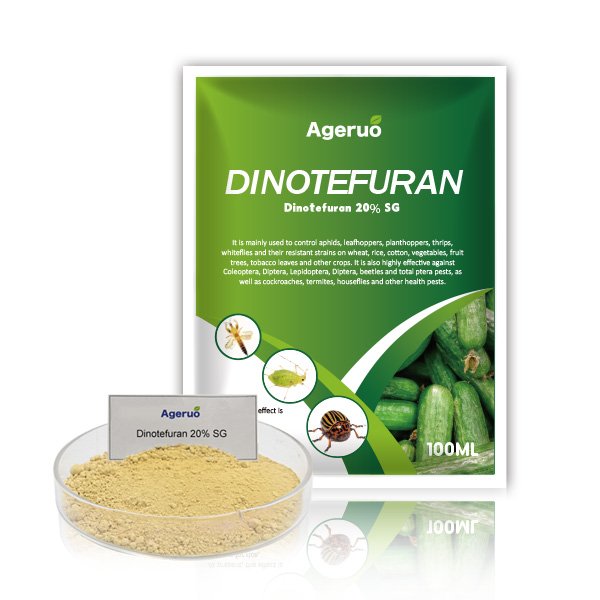What is Dinotefuran Used For?
What is Dinotefuran?
Dinotefuran is a synthetic insecticide that works by disrupting the central nervous system of insects. This chemical compound is widely used in agriculture, gardening, and pest control, offering protection against a broad spectrum of harmful pests. Its systemic nature ensures that it not only targets pests on the surface but also protects the internal tissues of plants.
Common Uses of Dinotefuran
1. Agricultural Pest Control
Dinotefuran is frequently used in agriculture to manage pests such as aphids, whiteflies, thrips, leafhoppers, and other crop-damaging insects. This insecticide is especially useful in:
- Fruit Crops
- Vegetables
- Ornamental Plants
2. Turf and Lawn Care
In turf management, Dinotefuran is applied to control pests like grubs and other soil-dwelling insects. Its systemic action ensures that pests feeding on the roots are affected.
3. Ornamental Plant Protection
For gardeners and landscapers, Dinotefuran is a reliable solution to keep ornamental plants free from insect pests, helping to maintain plant health and appearance.
4. Non-Agricultural Applications
Dinotefuran is also effective for pest control in non-agricultural settings. It is found in products designed for use in homes, offices, warehouses, and other commercial spaces.
How Does Dinotefuran Work?
Dinotefuran works by targeting the insect’s nervous system. It binds to the nicotinic acetylcholine receptors in the insect’s brain, disrupting the normal flow of nerve impulses. This results in paralysis and ultimately death of the pest. As a systemic insecticide, it is absorbed by the plant and provides protection throughout the plant, even if pests feed on non-sprayed areas.
Benefits of Dinotefuran
Quick Knockdown and Long-Lasting Protection
Dinotefuran acts rapidly, providing quick knockdown of pests and long-lasting protection. This makes it ideal for situations requiring immediate pest control, such as heavy infestations.
Broad Spectrum of Control
Dinotefuran controls a wide variety of pests, including:
- Aphids
- Whiteflies
- Thrips
- Leafhoppers
- Grubs
Its versatility makes it a valuable tool for pest management across different plant types and environments.
Systemic Action
The systemic nature of Dinotefuran ensures that pests feeding on the plant, including those that target the roots, are effectively controlled. This provides comprehensive protection.
Safety Considerations When Using Dinotefuran
While Dinotefuran is effective, it is crucial to follow safety guidelines to ensure its proper use:
1. Follow Label Instructions
Always apply Dinotefuran as per the manufacturer’s instructions to ensure maximum effectiveness and minimize risks.
2. Use Personal Protective Equipment (PPE)
When handling and applying Dinotefuran, wear appropriate PPE, including gloves and protective clothing, to avoid exposure.
3. Consider the Impact on Beneficial Insects
Dinotefuran can be toxic to beneficial insects, such as bees. It is essential to apply this pesticide during times when pollinators are less active, or take steps to avoid exposure to these crucial species.
Is Dinotefuran Approved for Organic Farming?
Dinotefuran is not allowed in organic farming as it is a synthetic pesticide. Organic farming practices typically restrict the use of such chemicals. If you are an organic grower, consider exploring alternative pest control methods that align with organic standards.
Why Choose Dinotefuran for Pest Control?
Dinotefuran is a highly effective insecticide for pest management in a wide range of environments. Its systemic action, rapid effectiveness, and broad-spectrum control make it a go-to solution for farmers, gardeners, and pest control professionals. However, like all pesticides, it should be used responsibly, following safety protocols to ensure the health of the environment and beneficial insects.
What is Dinotefuran?
Dinotefuran is a synthetic insecticide that works by disrupting the central nervous system of insects. This chemical compound is widely used in agriculture, gardening, and pest control, offering protection against a broad spectrum of harmful pests. Its systemic nature ensures that it not only targets pests on the surface but also protects the internal tissues of plants.
Common Uses of Dinotefuran
1. Agricultural Pest Control
Dinotefuran is frequently used in agriculture to manage pests such as aphids, whiteflies, thrips, leafhoppers, and other crop-damaging insects. This insecticide is especially useful in:
- Fruit Crops
- Vegetables
- Ornamental Plants
2. Turf and Lawn Care
In turf management, Dinotefuran is applied to control pests like grubs and other soil-dwelling insects. Its systemic action ensures that pests feeding on the roots are affected.
3. Ornamental Plant Protection
For gardeners and landscapers, Dinotefuran is a reliable solution to keep ornamental plants free from insect pests, helping to maintain plant health and appearance.
4. Non-Agricultural Applications
Dinotefuran is also effective for pest control in non-agricultural settings. It is found in products designed for use in homes, offices, warehouses, and other commercial spaces.
How Does Dinotefuran Work?
Dinotefuran works by targeting the insect’s nervous system. It binds to the nicotinic acetylcholine receptors in the insect’s brain, disrupting the normal flow of nerve impulses. This results in paralysis and ultimately death of the pest. As a systemic insecticide, it is absorbed by the plant and provides protection throughout the plant, even if pests feed on non-sprayed areas.
Benefits of Dinotefuran
Quick Knockdown and Long-Lasting Protection
Dinotefuran acts rapidly, providing quick knockdown of pests and long-lasting protection. This makes it ideal for situations requiring immediate pest control, such as heavy infestations.
Broad Spectrum of Control
Dinotefuran controls a wide variety of pests, including:
- Aphids
- Whiteflies
- Thrips
- Leafhoppers
- Grubs
Its versatility makes it a valuable tool for pest management across different plant types and environments.
Systemic Action
The systemic nature of Dinotefuran ensures that pests feeding on the plant, including those that target the roots, are effectively controlled. This provides comprehensive protection.
Safety Considerations When Using Dinotefuran
While Dinotefuran is effective, it is crucial to follow safety guidelines to ensure its proper use:
1. Follow Label Instructions
Always apply Dinotefuran as per the manufacturer’s instructions to ensure maximum effectiveness and minimize risks.
2. Use Personal Protective Equipment (PPE)
When handling and applying Dinotefuran, wear appropriate PPE, including gloves and protective clothing, to avoid exposure.
3. Consider the Impact on Beneficial Insects
Dinotefuran can be toxic to beneficial insects, such as bees. It is essential to apply this pesticide during times when pollinators are less active, or take steps to avoid exposure to these crucial species.
Is Dinotefuran Approved for Organic Farming?
Dinotefuran is not allowed in organic farming as it is a synthetic pesticide. Organic farming practices typically restrict the use of such chemicals. If you are an organic grower, consider exploring alternative pest control methods that align with organic standards.
Why Choose Dinotefuran for Pest Control?
Dinotefuran is a highly effective insecticide for pest management in a wide range of environments. Its systemic action, rapid effectiveness, and broad-spectrum control make it a go-to solution for farmers, gardeners, and pest control professionals. However, like all pesticides, it should be used responsibly, following safety protocols to ensure the health of the environment and beneficial insects.

